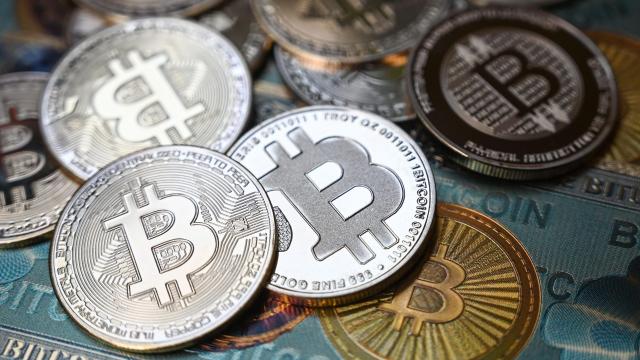Traders who suffered losses due to a Binance platform malfunction during the May 19th Bitcoin cryptocurrency crash are forging ahead with a lawsuit. As the Financial Times first reported, six traders have gotten $US5 ($7) million in backing from the Swiss litigation funding firm Liti Capital in an expensive battle to recover money lost due to Binance’s glitch, which prevented them from selling off their assets before it was too late.
Independent international litigation attorney Aija Lejniece told Gizmodo that the six people currently signed on to the case contacted her in May and lead a 700-member group that initially gathered on Discord.
The rest have yet to sign on, but the team has set up a website Binance Claim in order to recruit more people harmed by the several-hour Binance crash. Liti Capital chief investment officer David Kay told Gizmodo via Zoom that they hope to add as many as (but not limited to) 300 claimants.
As cryptocurrency prices plummeted on May 19th, traders were unable to access their accounts, and Binance automatically liquidated their funds in order to pay off large sums they’d leveraged with margin collateral borrowed from Binance. They believe that in total, the 700-member group may have lost a cumulative $US100 ($140) million.
Kay told Gizmodo that the six claimants, from several countries, have a collective $US20 ($28) million in claims. (Liti takes a 30% contingency fee.) The total claim amount will rise as more people add themselves to the case. Liti has pledged to cover all costs.
The case highlights how difficult it is for an individual to recover their funds, due to Binance’s militant terms of use. In the terms, Binance — which has no headquarters — only allows arbitration through the Hong Kong International Arbitration Centre. In order to get a hearing there, a single plaintiff would need to pay a $US65,000 ($90,747) fee and Binance’s terms of service state that people can only arbitrate individually. Meaning that Liti Capital would have to pay a collective $US45.5 ($64) million to recoup losses for 700 litigants.
In its terms of service, Binance also has users agree to take a hit in the event of glitches. “In some market situations, you may find it difficult or impossible to liquidate a position,” it reads. “This may occur, for example, as a result of insufficient market liquidity or technical issues on Binance.”
But Kay told Gizmodo that the group believes Binance’s terms, which choke off litigation by making arbitration prohibitively expensive due to fees, and force consumers to eat glitch-related losses, shouldn’t apply.
“If it is true that, in this new kind of company, you can be forced to travel in most cases halfway around the world and pay tens of thousands, if not hundreds of thousands of dollars for recourse,” he said, “maybe then we are really in a new world order where 50 years of consumer and financial protections that most of the developed world have built up to protect against this exact situation have no meaning.”
He added that Liti Capital, which owns its own LITI token, isn’t advocating for regulating “community assets” such as cryptocurrency — only the for-profit companies using those assets to “evade real responsibility.”
Binance declined to comment on the litigation, but, in an email to Gizmodo, wrote that it compensates users for “actual trading losses” during outage events. It added that Binance does “not cover hypothetical ‘what could have been’ situations such as unrealized profits.” In other words, Binance wouldn’t cover losses for the missed value of logical sell-offs during a crash.
Even before the crash, regulators have scrutinised Binance. In early May, Bloomberg reported that the Department of Justice and IRS opened an investigation into potential money laundering through the platform. Japan and the U.K. have banned it. Some of the six traders are in fact from the U.K., showing that Binance is able to serve customers who use VPNs.
“I think this case is landmark,” Kay told Gizmodo. “This is a company that has no headquarters, it’s not regulated,” he said. “And yet it is a financial behemoth that is offering complicated financial products to the public. Those two things don’t work together.”
